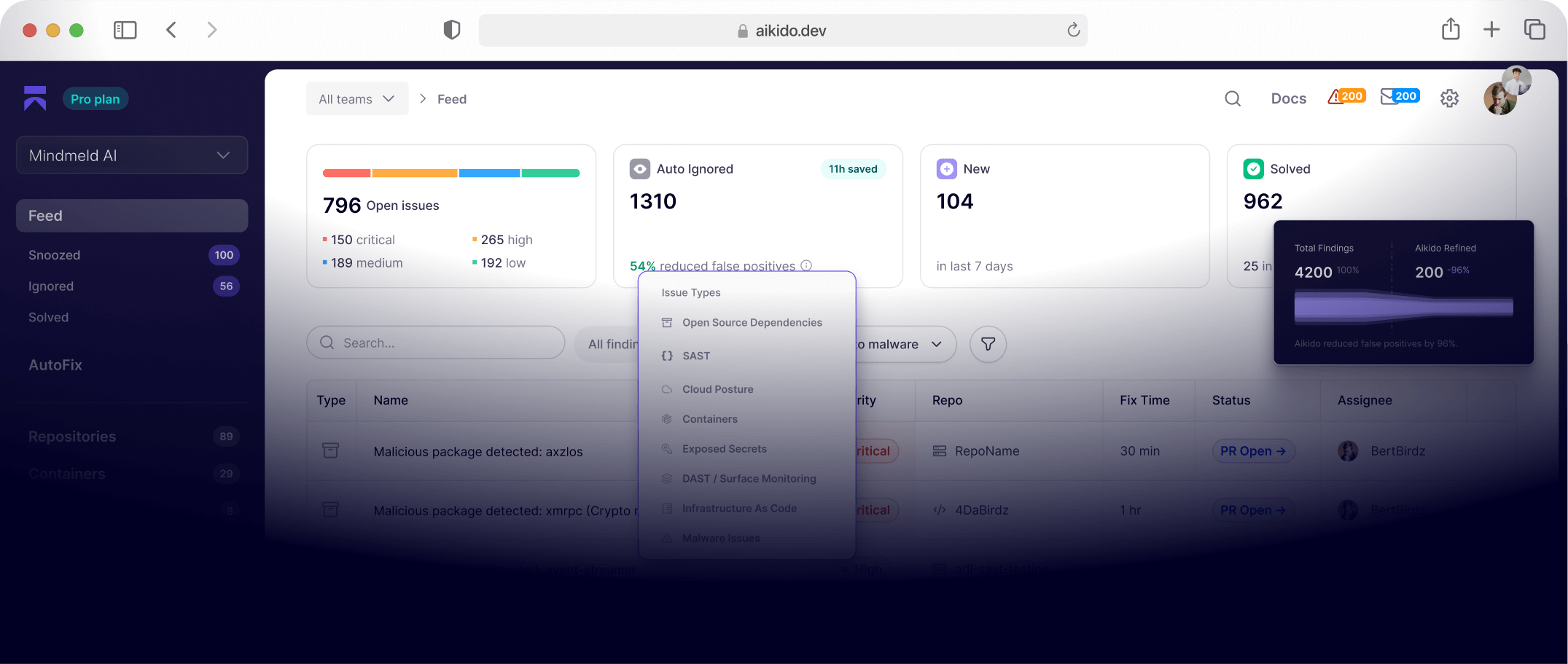Secrets detection
Learn how source code secrets detection helps developers protect sensitive data, detect exposed credentials, and enhance application security effortlessly.

Secret detection
Every developer makes mistakes. One of the most common—and potentially dangerous for the security of your production applications—is accidentally leaking your secrets. This includes sensitive credential data, like API keys, passwords, encryption keys, private keys, and more, all of which would let attackers access or extract confidential information.
Secrets detection, in turn, is the automated process of identifying instances of said leaks, informing you of the type and severity, and sometimes offering advice on how to best clean up.
have accidentally exposed sensitive information in their code repositories.
Stack Overflow
An example of secrets detection and how it works
Imagine this (very common) scenario: To add a shiny new feature to your next application, you leverage a third-party API, authenticating your requests with an API key. Instead of saving said API key to an .env file for local development, you embed it directly into your application as a variable.
The moment you commit and push that API key to GitHub? Whoops—you’ve leaked your secret. At least with a secrets detection tool, you can quickly rotate your key, take some immediate steps to clean up your Git history, and migrate to a different storage method.

How does secrets detection help developers?
When a secrets detection tool scans your source code, ideally with every commit, it helps you remove credentials quickly or catch leaks before you make them public.
Working in an industry with high compliance standards for data protection? Source code secrets detection prevents small slip-ups that create big problems.
Ramp up your usage of Infrastructure as Code (IaC) like Terraform or CloudFormation without fear of accidentally giving attackers full access to your cloud providers.
Ease the worry and cognitive load involved with manually checking new commits and pull requests for possible secrets exposure.

Implementing source code secrets detection: An overview
As with every tool for developers, you have multiple ways of implementing secrets detection in your source code and configurations.
For example, if you want to build a solution with an open-source tool like Gitleaks:
Or with aikido
Start detecting secrets in your source code for free
Whether you use an open-source tool like Gitleaks or a comprehensive application security platform like Aikido, you shouldn’t be on the hook for checking every commit in every repository. Save yourself time and tons of cognitive load with as many automations as possible.
Even if you haven’t leaked secrets recently, you should frequently rotate your API keys, passwords, and other credentials to minimize your risk. If your providers allow it, set a date every 30, 60, or 90 days at which your current keys expire.
Start detecting secrets in your source code for free
Connect your Git platform to Aikido to start detecting secrets with instant triaging, smart prioritization, and pinpoint context for fast remediation.
First results in 60 seconds with read-only access.
SOC2 Type 2 and
ISO27001:2022 certified
Get secure now
Secure your code, cloud, and runtime in one central system.
Find and fix vulnerabilities fast automatically.


